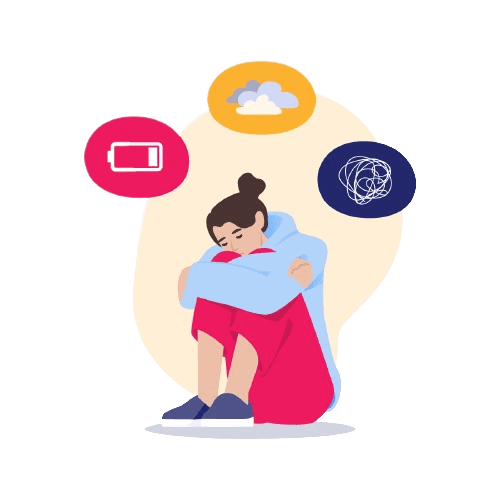Childhood Aspergers Syndrome Assessment
3 Min Free Childhood Aspergers Syndrome Assessment
What is Childhood Aspergers Syndrome?
Childhood Asperger’s Syndrome, also referred to as Asperger’s Disorder or Asperger’s Syndrome, was a diagnostic category that was part of the autism spectrum disorder (ASD) in the previous edition of the Diagnostic and Statistical Manual of Mental Disorders (DSM-IV). However, as of the DSM-5, published in 2013, the term “Asperger’s Syndrome” is no longer used as a separate diagnosis. Instead, individuals who previously would have been diagnosed with Asperger’s Syndrome are now included under the broader category of Autism Spectrum Disorder (ASD).
ASD encompasses a range of neurodevelopmental disorders characterized by challenges in social interaction, communication difficulties, and restricted or repetitive patterns of behavior, interests, or activities. The term “Asperger’s Syndrome” was initially used to describe individuals who exhibited some of the core characteristics of ASD but did not have significant language delays or intellectual disabilities.

Symptoms of Childhood Aspergers Syndrome
The symptoms of depression can vary from person to person, but they often include:
- Difficulty with social interactions
- Impaired social communication
- Restricted and repetitive behaviors
- Highly focused interests
- Difficulty with changes and transitions
- Sensory sensitivities
- Difficulty with social reciprocity
- Lack of or limited imaginative play
- Difficulty understanding social norms
- Unusual body language or speech
- Strong need for routine
- Motor coordination difficulties

Who Can Benefit From This Childhood Aspergers Syndrome Assessment?
The Childhood Asperger’s Syndrome assessment can benefit various individuals and groups involved in the identification, support, and treatment of children suspected of having Asperger’s Syndrome. Parents and caregivers can gain understanding, seek appropriate interventions, and access specialized services.
Educators can recognize and create inclusive learning environments tailored to the needs of children with Asperger’s Syndrome. Healthcare professionals can use the assessment to diagnose, plan treatment, and provide referrals. Researchers and academics can utilize the assessment to expand knowledge and develop effective interventions.
Overall, the assessment aids in early identification, intervention, and support for children with Asperger’s Syndrome, promoting their well-being and development.
Types of Childhood Aspergers Syndrome Assessment
Developmental & Behavioral Assessments
These assessments involve comprehensive evaluations of a child’s developmental milestones, social skills, communication abilities, and behavioral patterns. They may include structured observations, parent and teacher interviews, and standardized rating scales.
Diagnostic Interviews
Clinical interviews conducted by qualified professionals, such as psychologists or psychiatrists, can assess the child’s history, symptoms, and functioning. Diagnostic interviews like the Autism Diagnostic Interview-Revised (ADI-R) or the Diagnostic Interview for Social and Communication Disorders (DISCO) can help determine the presence of AS traits.
Autism-specific Screening Tools
Screening tools such as the Modified Checklist for Autism in Toddlers (M-CHAT) or the Social Communication Questionnaire (SCQ) can help identify potential red flags or risk factors associated with AS. These tools are often used as an initial step to determine if further evaluation is needed.
Cognitive and Intellectual Assessments
These assessments evaluate a child’s cognitive abilities, including IQ tests and measures of intellectual functioning. They can help determine the child’s cognitive strengths and weaknesses and provide insights into their learning profile.
Social Communication Assessments
Assessments specifically designed to evaluate social communication skills can provide a detailed analysis of a child’s abilities in areas such as nonverbal communication, social reciprocity, understanding figurative language, and pragmatic language skills.
Adaptive Behavior Assessments
These assessments measure a child’s functional skills and adaptive behaviors in various domains, including communication, socialization, self-care, and daily living skills. They provide insights into the child’s ability to navigate and cope with everyday tasks and situations.
Treating Childhood Aspergers Syndrome
Treating childhood Asperger’s Syndrome, which is now encompassed under the diagnosis of Autism Spectrum Disorder (ASD), involves a comprehensive, individualized approach that addresses the unique needs and challenges of each child. Here are some common components of treatment for childhood ASD:
- Early Intervention: Early intervention programs aim to provide specialized services and support as soon as possible after diagnosis. These programs often include behavioral and developmental therapies designed to improve social skills, communication abilities, and adaptive behaviors.
- Applied Behavior Analysis (ABA): ABA is a widely used intervention approach for children with ASD. It focuses on breaking down skills into smaller, manageable steps and using positive reinforcement to encourage desired behaviors while minimizing challenging behaviors.
- Speech-Language Therapy: Speech-language therapy helps children with ASD improve their communication skills, including expressive and receptive language abilities, nonverbal communication, and social pragmatics.
- Occupational Therapy: Occupational therapy focuses on developing fine motor skills, sensory integration, and enhancing independence in activities of daily living. It helps children with ASD improve their sensory processing and self-regulation abilities.
- Social Skills Training: Social skills training programs teach children with ASD appropriate social behaviors, social understanding, and the ability to navigate social interactions. These interventions often involve structured group activities and role-playing exercises.
- Parent and Family Support: Providing support and education to parents and families is crucial in helping them understand and manage the challenges associated with ASD. Parent training programs and support groups can provide guidance, strategies, and emotional support.
- Individualized Education Programs (IEPs): Collaborating with educators, IEPs are developed to address the child’s specific educational needs, accommodations, and support services in school settings.
- Medication: In some cases, medication may be prescribed to address co-occurring conditions or symptoms such as anxiety, attention difficulties, or aggression. Medication decisions should be made in consultation with a qualified healthcare professional.
It’s important to note that interventions and treatment plans should be individualized based on the child’s strengths, needs, and preferences. Ongoing support, collaboration among professionals, and a nurturing and inclusive environment are essential for promoting the child’s development, learning, and overall well-being.

